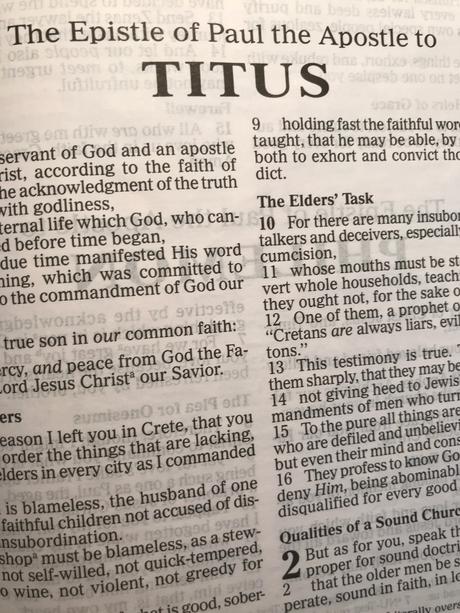Grace Thoughts
Living Christian In ‘This Present World’ (Part 11)

Copyright © 1982 by Thomas Nelson. Used by permission. All rights reserved.
" data-orig-size="3024,4032" data-image-title="Titus Page" class="attachment-rowling-post-image size-rowling-post-image wp-post-image" data-orig-file="https://gracelifethoughts.com/wp-content/uploads/2020/12/titus-page.jpeg" data-image-description="Copyright © 1982 by Thomas Nelson. Used by permission. All rights reserved.
" height="1088" width="816" data-medium-file="https://gracelifethoughts.com/wp-content/uploads/2020/12/titus-page.jpeg?w=225" data-permalink="https://gracelifethoughts.com/titus-page/" alt="" decoding="async" data-image-meta="{"aperture":"1.8","credit":"","camera":"iPhone 7","caption":"","created_timestamp":"1609338905","copyright":"","focal_length":"3.99","iso":"25","shutter_speed":"0.025","title":"","orientation":"1"}" data-large-file="https://gracelifethoughts.com/wp-content/uploads/2020/12/titus-page.jpeg?w=616" />Copyright © 1982 by Thomas Nelson. Used by permission. All rights reserved.
In the last part of our study, we looked at three important aspects of living Christian in the present world:
- be subject to rulers and authorities
- obey
- be ready for every good work
Let’s look at the other four and see what we can learn that will help us live Christian in this present age.
Reminders
Paul told Titus to “remind” Christians who lived on the on island of Crete. That means Paul and Titus had told them these things before. No matter how long we are Christians, it’s always good to be reminded of how God wants us to live. It’s so easy to forget.
The word “remind” is the Greek hupomimnēske and means “to call to mind, to remember because prompted.” Paul used the verb in the present tense, imperative mood, active voice, which meant to “keep reminding” the Christians on Crete. These are things that need to be repeated. Christians need a continual prompting lest they forget the importance.
Speak Evil of No One
Remind them to be subject to rulers and authorities, to obey, to be ready for every good work, to speak evil of no one, to be peaceable, gentle, showing all humility to all men. Titus 3:1-2
The fourth reminder was about not speaking evil of anyone. It appears from the change in terms that Paul was moving from a Christian’s responsibility to government leaders to their responsibility to fellow human beings. Even as Christians may have differences with government officials, they my also have differences with fellow citizens. How should they respond to those differences?
The Greek words mēdena blasphēmein mean “no one to speak evil of.” The Greek word blasphēmein was transliterated into the English word “blaspheme.” It’s a strong verb meaning “to slander, speak evil against.” The word could be used for slandering humans or that which is sacred (e.g. God).
Christians need to watch how they speak about people, including people in both high and low positions. Unbelievers learn a lot about what Christians really believe by how they speak about others. Christians who speak well of others in public, but blaspheme those same people in private are viewed by unbelievers as hypocrites.
Some of the cruelest things are said by people who are part of the same family. This can also be a problem among Christians. I remember as a twelve-year-old attending a church business meeting and hearing people say very cruel things to one another. The same people who pretended to be nice to each other during church meetings expressed the real contempt they held for each other. It was an ugly scene and was the beginning of my deciding to leave the church a few years later. I saw those people as hypocrites and mean-spirited. Christians need to carefully watch what they say about others. You may not realize how your words affect others.
Be Peaceable
The Greek is amachous einai – “peaceable to be.” The word amachous is an adjective that means “not contentious, abstaining from fighting.” The idea is that Christians should not be “quarrelsome.” Paul mentioned the same thing to Timothy when he wrote that bishops should not be quarrelsome (amachon). Paul wanted Christians in the pew to be like pastors in the pulpit.
That just brought to my memory a very sad event that I haven’t thought about for many years. We visited my parent’s church decades ago and left at the end of the service. We were eating lunch when my parent’s phone rang. My mother answered the phone and we could tell something bad had happened. He returned to the table and told us that one of the men had run up to the platform during the business meeting with a knife in his hand. The pastor ran from the church, packed up his wife and children and left the nearby parsonage. The pastor and his family did not return.
While you might think that’s an extreme case of being “quarrelsome,” it’s not. That was not the first time I personally witnessed Christians and leaders openly quarreling with each other. Many pastors have left the ministry because of verbal and physical abuse by members. Many members have left their churches because of verbal and physical abuse by pastors and other church leaders. It can go both ways, which is why Paul told pastors and members not to be quarrelsome. If we’re going to preach the Gospel of peace, we need to “be peaceable.”
Gentle
The word “gentle” is epieikeis and is an adjective that means “yielding, equitable, reasonable, moderate.” One definition is “justice beyond ordinary justice.” The noun form, epieikeia, means “fairness, forbearance, moderation, equity-justice.” Paul used the same word in 1 Timothy 3 about bishops (pastors). James wrote that gentleness is part of “the wisdom that is from above” (James 3:17).
Christians need to be reminded to be gentle, to be ready to yield to others, be reasonable and equitable. Why? Because that’s not inherent in human nature. Being gentle in difficult situations is part of the Spirit’s fruit in our lives as God’s people (Galatians 5:23). Outbursts of wrath and dissensions are some of the “works of the flesh” (Galatians 5:20). It’s natural for people to demand their rights. It’s supernatural for people to yield some of their rights for the benefit of others.
I think we can agree that we need more gentleness in our world today, but where will it begin? Should we wait for unbelievers to show the path toward gentleness? I don’t think so. Paul told Titus and Timothy to remind Christians that gentleness should begin with them (us). Think about our highest example of the Christian heart and spirit – our Lord and Savior, Jesus Christ:
Take My yoke upon you and learn from Me, for I am gentle and lowly in heart, and you will find rest for your souls. Matthew 11:29
If we are to be like Jesus, we need to be gentle and lowly in heart.
Showing All Humility To All Men
Showing humility to all men is pasan endeiknumenous prautēta pros pantas anthrōpous. The word endeiknumenous means to “prove, indicate, show forth, make fully evident.” The word prautēta means “gentleness, mildness, meekness.” To be meek does not men to be weak. It means having “gentle strength.” Showing humility is the opposite of promoting your own way of doing things. Yielding to others does not demonstrate weakness. It demonstrates strength of character and resolve. It’s what Jesus did when He suffered and died on the Cross for our sins. As Jesus told His disciples:
Therefore whoever humbles himself as this little child is the greatest in the kingdom of heaven. Matthew 18:4
Jesus also promised a reward to those who humble themselves:
For whoever exalts himself will be humbled, and he who humbles himself will be exalted. Luke 14:11
The Apostle Paul pleaded with the Corinthian Christians by both the meekness and gentleness of Jesus Christ (2 Corinthians 10:1). In using these terms for Christians in Titus 3, we see a powerful combination that will prepare us for whatever this age throws at us.
Next Time
Crete was not an easy place for Christians to live, much like what we have in our world today. Living Christian in this present world is becoming more difficult every day, which is why we are presenting this special series of studies from Titus.
There is something else that Paul told Titus to remind Christians about that is important for us to hear today – no matter where we live. It goes to the heart of what we were, what we are and what we will be. It goes to the reason for our unusual behavior in this world. We will look at that in the next part of our special series, Living Christian in the Present World.
Scripture taken from the New King James Version®. Copyright © 1982 by Thomas Nelson. Used by permission. All rights reserved.
GraceLife © 1990-2024
 Apostle PaulChristianJesus ChristTitus
Apostle PaulChristianJesus ChristTitus

Published by gracelifethoughts
Founder & Director of GraceLife Ministries View all posts by gracelifethoughts
